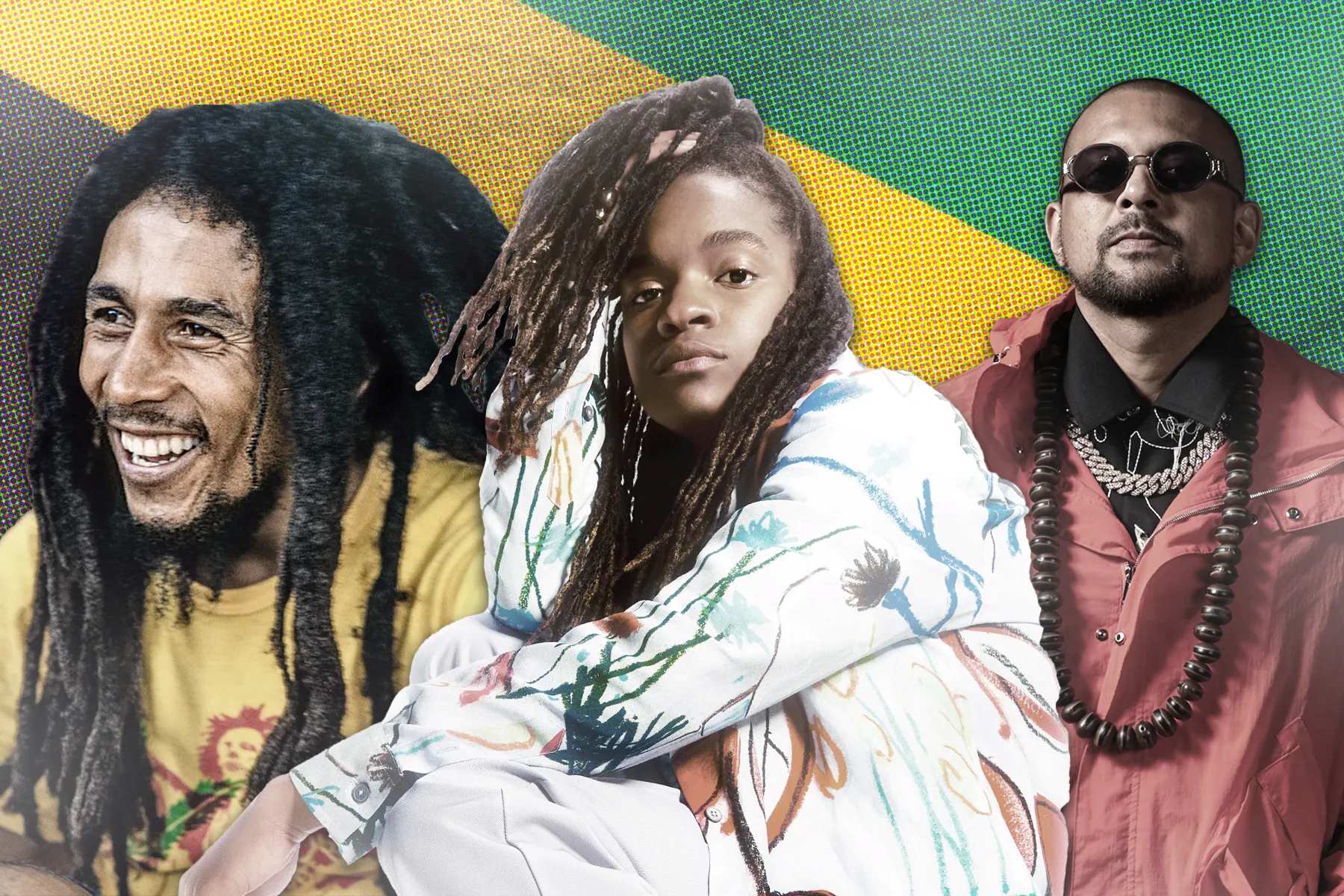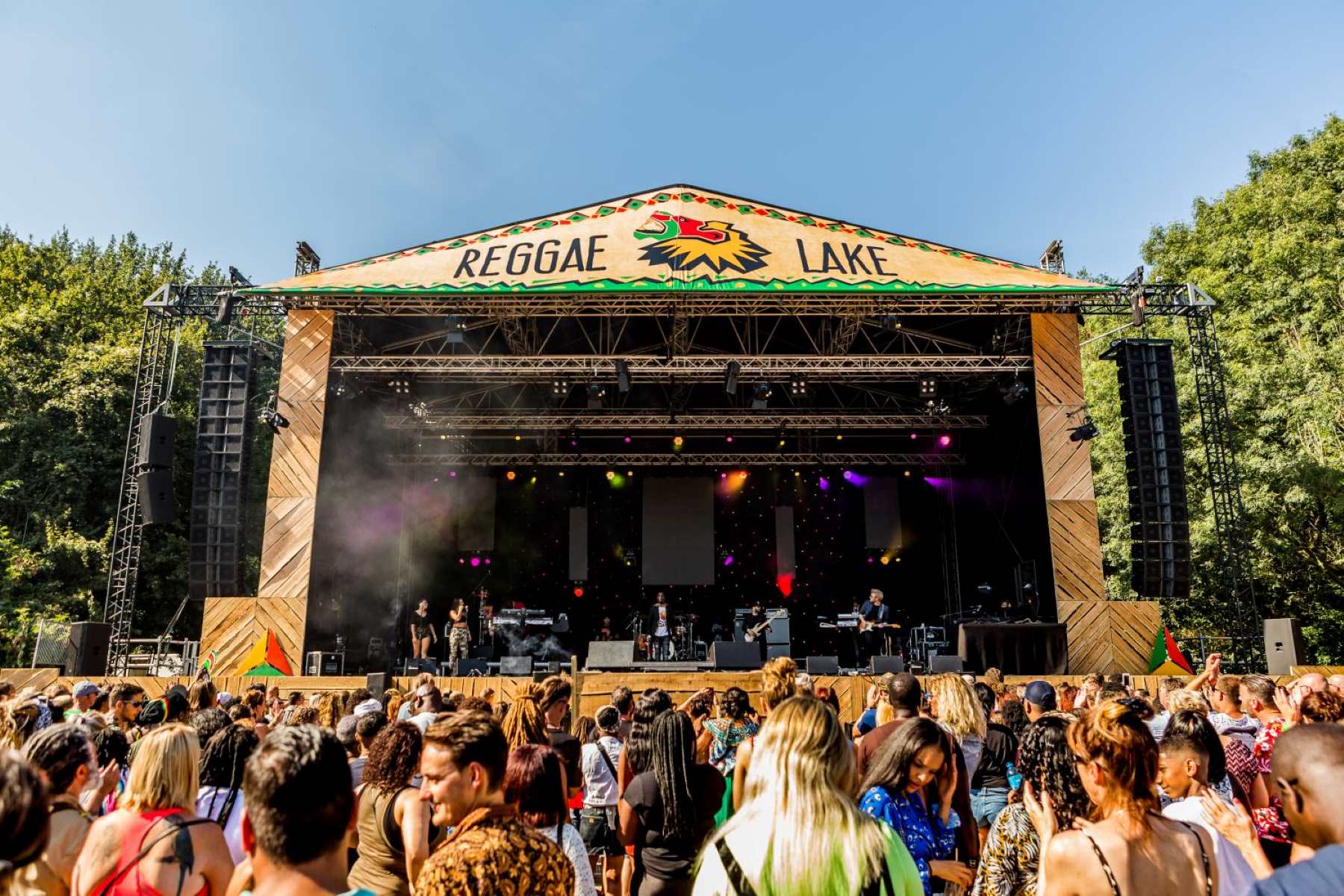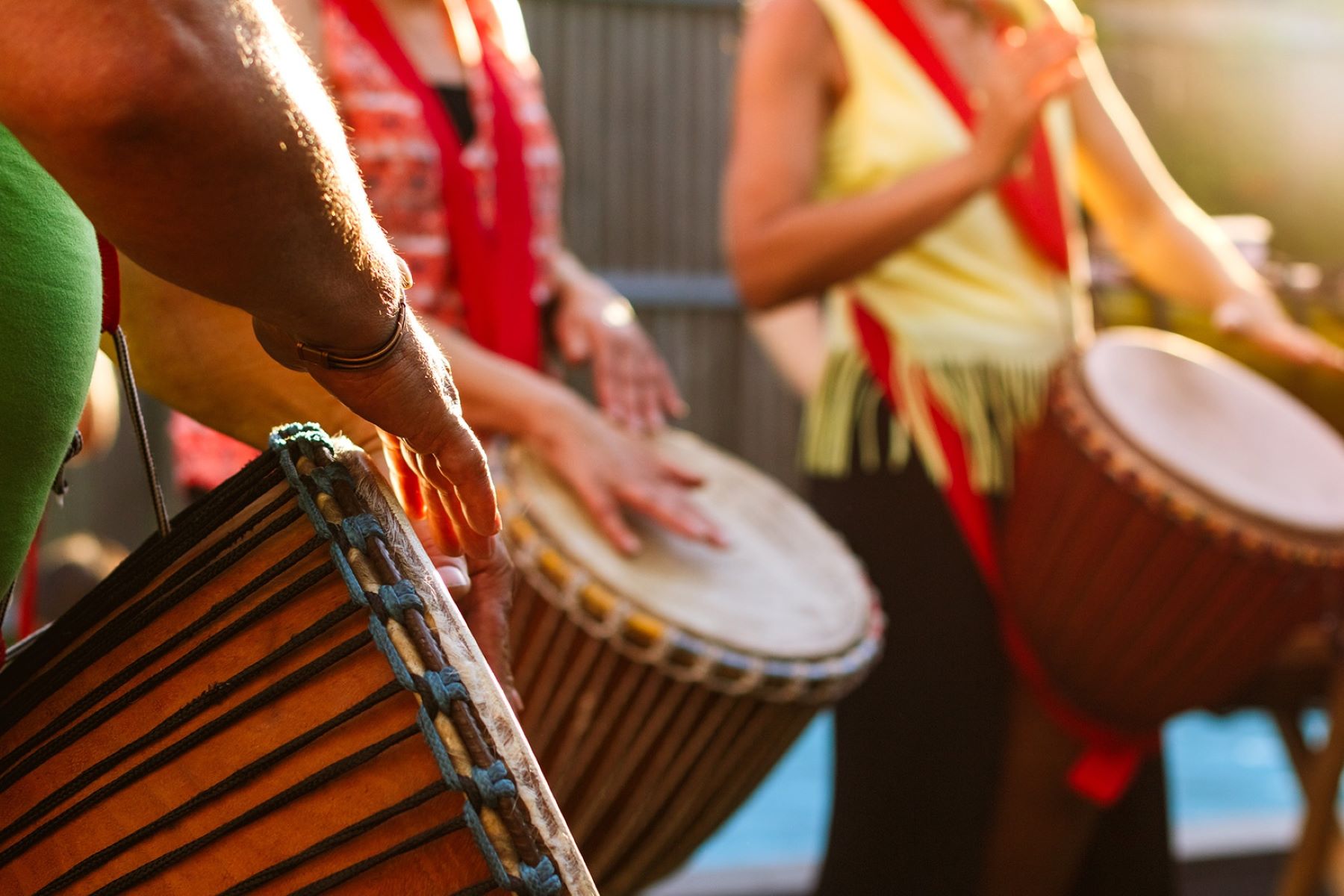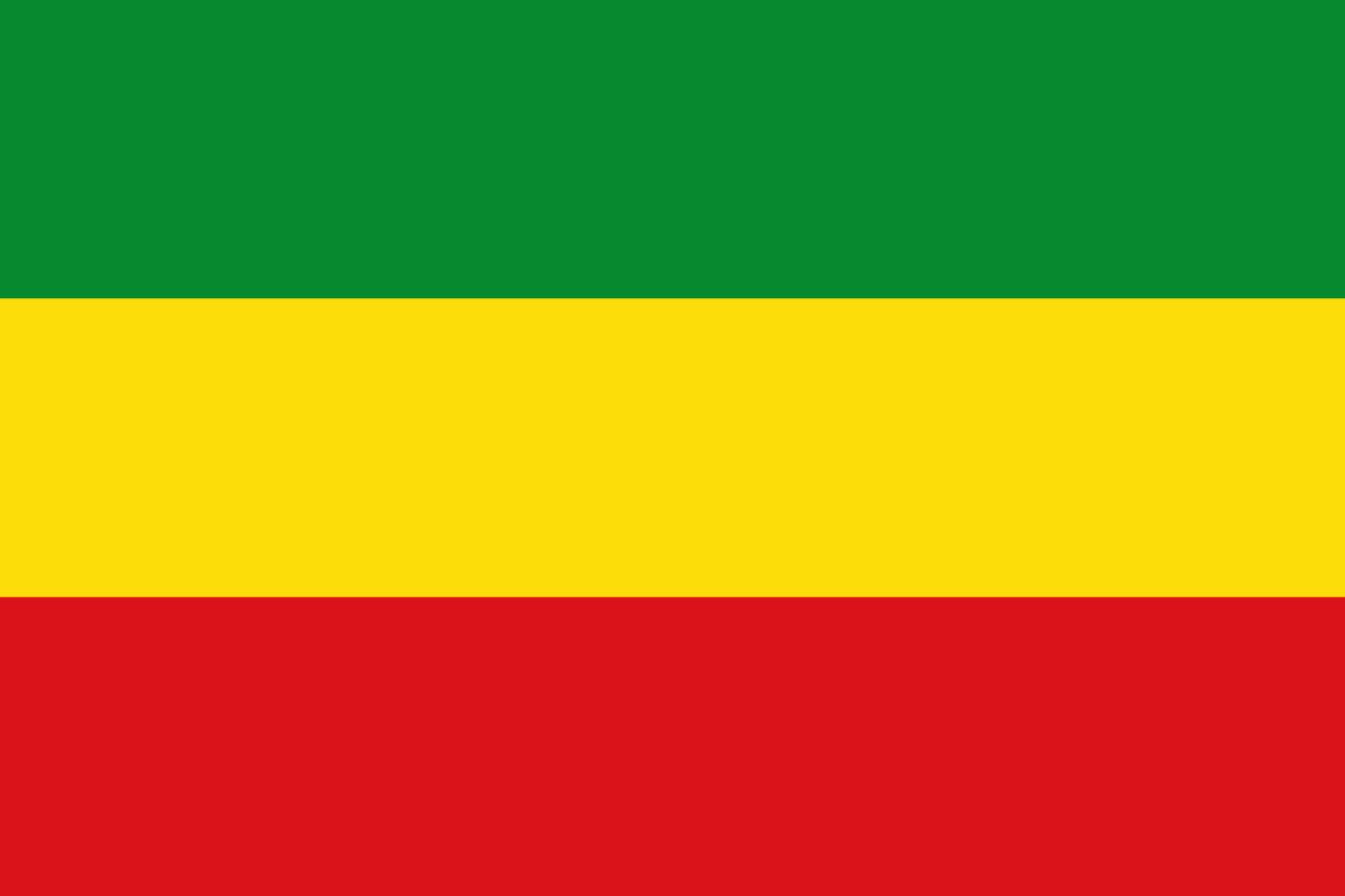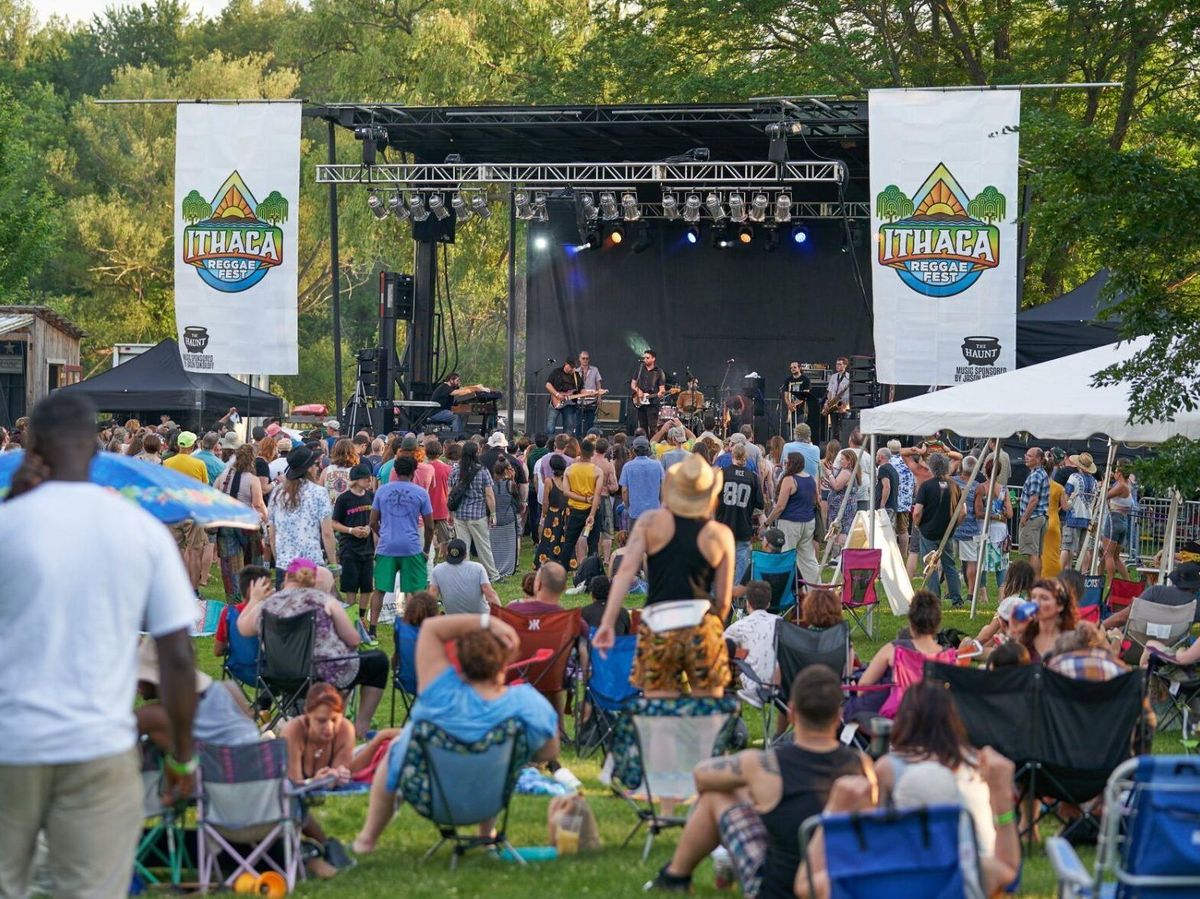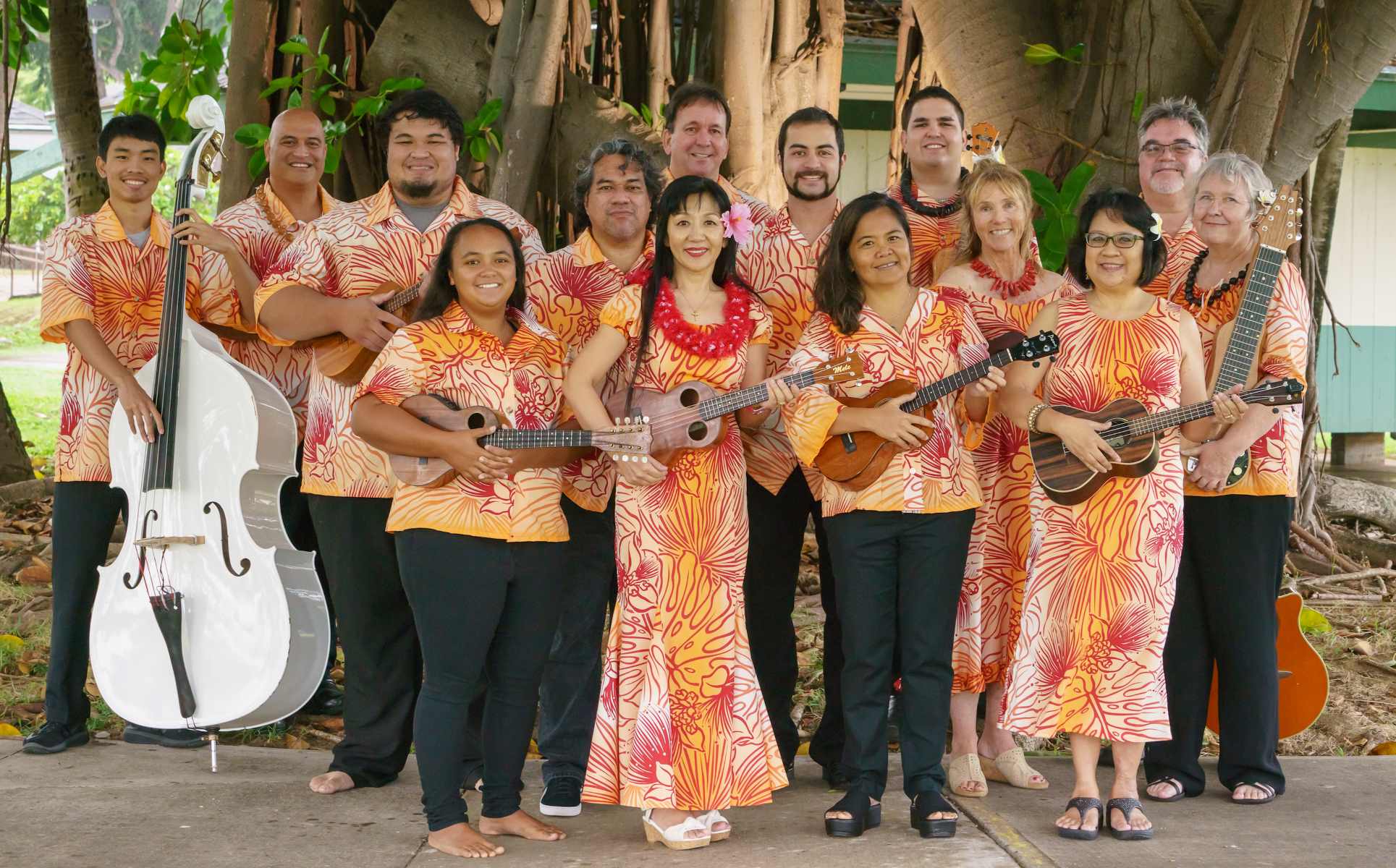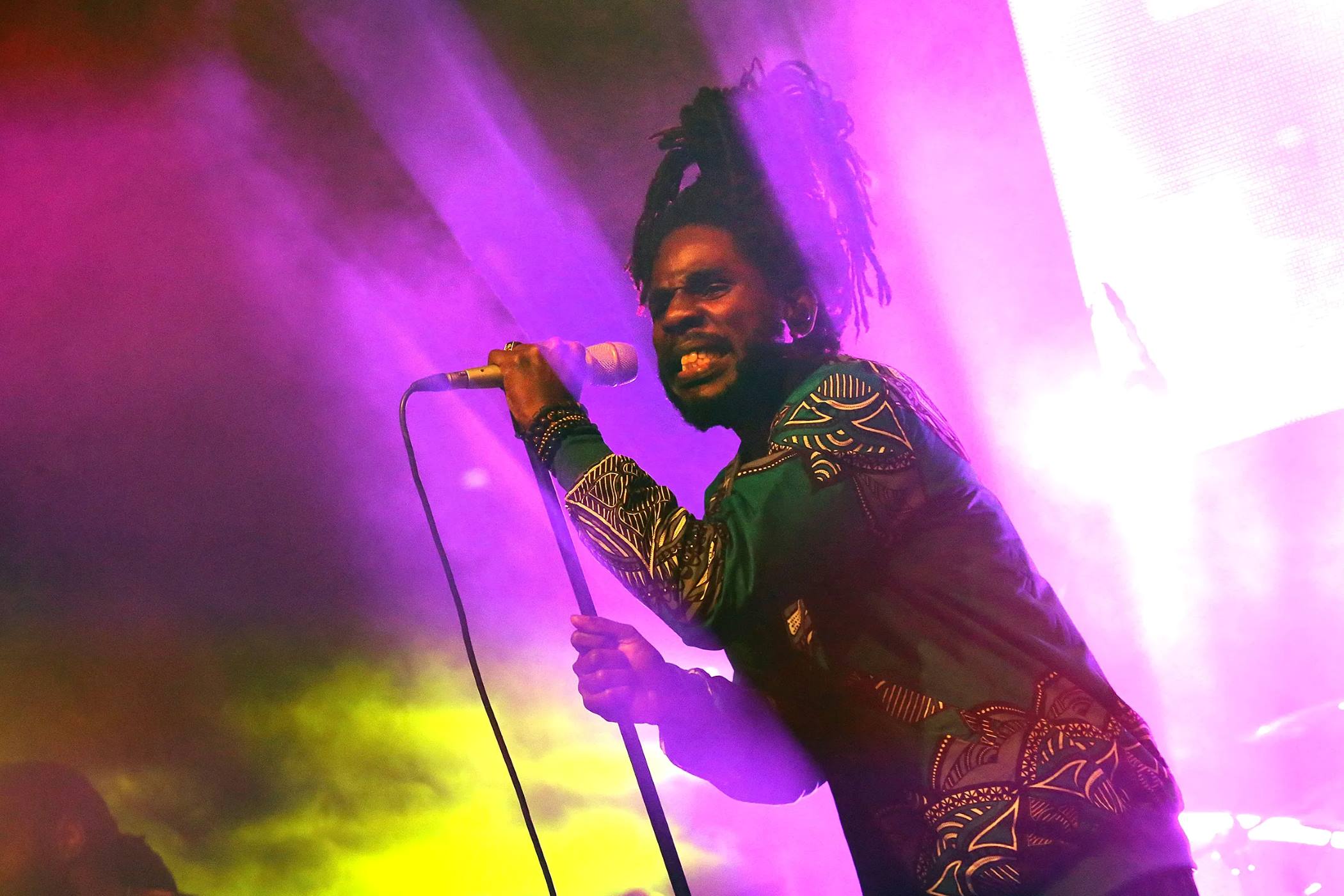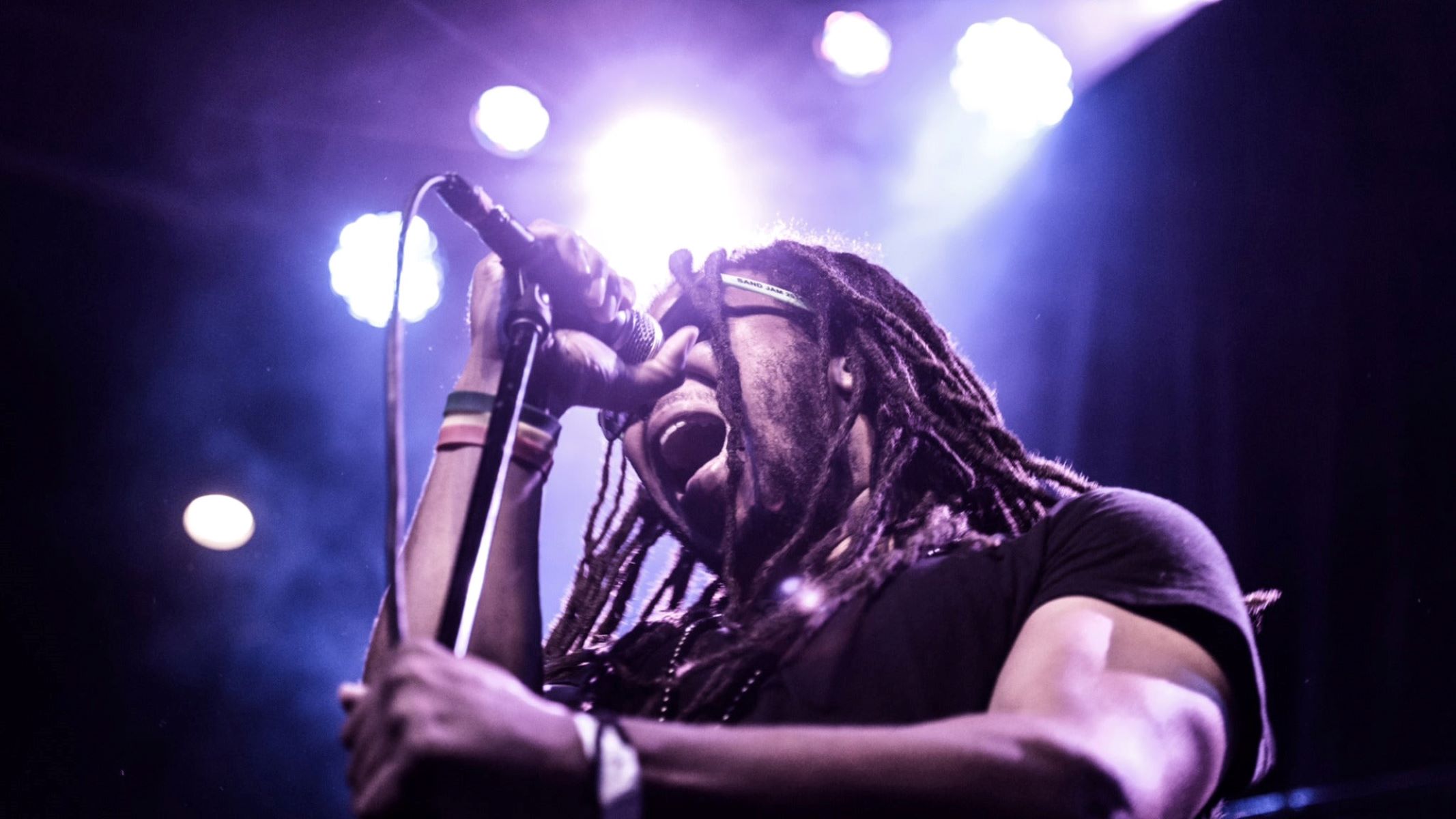

Reggae
What Is Reggae
Modified: March 3, 2024
Discover the vibrant world of Reggae and its origins, influences, and iconic artists. Gain insights into the cultural significance and evolution of this beloved music genre.
(Many of the links in this article redirect to a specific reviewed product. Your purchase of these products through affiliate links helps to generate commission for AudioLover.com, at no extra cost. Learn more)
Table of Contents
Introduction
Reggae music is an iconic genre that originated in Jamaica in the late 1960s. With its distinctive rhythm and soulful melodies, reggae has captured the hearts of music lovers around the world. It is more than just a genre; it is a cultural movement that embodies the spirit of resilience, liberation, and social justice.
Rooted in the rhythms of ska and rocksteady, reggae emerged as a distinct genre with its own unique style and message. It is characterized by its emphasis on the off-beat rhythm, known as the “heartbeat” or “skank,” as well as its smooth basslines and soulful vocals. The lyrics often touch on social and political issues, promoting messages of unity, love, and empowerment.
Reggae’s popularity soared in the 1970s with the emergence of legendary artists such as Bob Marley, Peter Tosh, and Jimmy Cliff. Their music brought reggae to the international stage and solidified its place in the global music scene. Today, reggae continues to captivate audiences worldwide, with its rich history and vibrant sound.
Reggae was born out of the socio-political climate of Jamaica, a country grappling with poverty, inequality, and social unrest. It provided a voice for the marginalized and became a platform for social commentary and resistance. The music served as an outlet for expressions of cultural identity and a means of unifying communities.
Over the years, reggae has evolved and branched out into various subgenres, each with its own distinct sound and influence. Dancehall, dub, and lovers rock are just a few examples of the diverse range of reggae subgenres that have emerged.
Reggae’s influence extends far beyond just the music itself. It has played a significant role in shaping popular culture, fashion, and even political movements. The reggae aesthetic, with its vibrant colors, dreadlocks, and Rastafarian symbolism, has become synonymous with a certain sense of liberation and authenticity.
In this article, we will delve into the origins of reggae, its defining characteristics, and its cultural and social significance. We will explore the impact of reggae on other music genres and examine the role of Rastafarianism in shaping the movement. Join us on this journey to discover the rich history and enduring legacy of reggae music.
Origins of Reggae
The roots of reggae can be traced back to the vibrant music scene of Jamaica in the 1960s. It emerged as a fusion of various musical styles, including ska and rocksteady. Ska, with its upbeat tempo and horn-driven melodies, laid the foundation for reggae’s rhythmic patterns. Rocksteady, a slower and smoother style, added a soulful element to the mix.
Reggae’s distinctive sound was shaped by influential Jamaican musicians and producers, such as Clement “Coxsone” Dodd, Duke Reid, and Lee “Scratch” Perry. These individuals played a pivotal role in developing the genre, both as performers and behind the scenes.
One key innovation that contributed to the development of reggae was the shift from the emphasis on the upbeat in ska to focusing on the off-beat, known as the “skank.” This off-beat rhythm became a defining characteristic of reggae, creating a laid-back and infectious groove that sets it apart from other genres.
Lyrically, reggae’s early songs often addressed social and political issues, reflecting the real-life experiences of Jamaican society. Themes of poverty, inequality, and resistance were common, as the music served as a voice for the marginalized and oppressed.
Bob Marley and the Wailers played a significant role in popularizing reggae and bringing it to a wider audience. With their powerful lyrics and soulful melodies, Marley and his band delivered messages of love, unity, and revolution. Their breakthrough album, “Catch a Fire” in 1973, helped create a global wave of interest in reggae music.
Reggae’s popularity continued to grow throughout the 1970s and beyond, with artists like Peter Tosh, Jimmy Cliff, and Burning Spear making their mark on the genre. The music’s infectious rhythm and positive messages resonated with listeners around the world, solidifying reggae’s place as an influential and enduring genre.
Today, reggae remains an integral part of Jamaican culture and has spread its roots globally. It continues to evolve and incorporate new influences, while maintaining its signature sound and powerful messages. The origins of reggae are a testament to the power of music as a tool for cultural and social expression, and it serves as a reminder of the enduring legacy of this iconic genre.
Characteristics of Reggae Music
Reggae music is characterized by its unique blend of rhythmic patterns, soulful vocals, and powerful lyrics. These elements come together to create the distinct sound that has captivated audiences worldwide. Here are some of the key characteristics that define reggae:
- Off-Beat Rhythm: The off-beat rhythm, known as the “skank,” is one of the defining features of reggae. It emphasizes the second and fourth beats of a musical measure, giving the music its laid-back and infectious groove.
- Syncopation: Reggae incorporates syncopated rhythms, with emphasis on unexpected beats or notes. This syncopated feel adds a dynamic and playful element to the music.
- Basslines: The bassline in reggae is often prominent and melodic, providing a driving force behind the music. It creates a deep and resonating sound that is central to the genre’s rhythmic foundation.
- Guitar Skanks: Alongside the bass, reggae music features rhythmic guitar patterns known as “skanks.” These repetitive and percussive guitar strummings add texture to the music and contribute to its distinctive sound.
- Horn Sections: Many reggae songs feature horn sections, adding a rich and vibrant brass sound to the music. The horns often play melodic hooks and counterpoints to the vocals, enhancing the overall musical arrangement.
- Soulful Vocals: Reggae vocals are known for their heartfelt and soulful delivery. Artists use their voices to convey powerful messages of love, unity, and social commentary, connecting with listeners on a deep emotional level.
- Lyrics: Reggae lyrics often address social and political issues, delivering messages of empowerment, resistance, and positivity. The lyrics reflect the realities of Jamaican society and provide a voice for the marginalized and oppressed.
- Call and Response: Reggae music frequently incorporates call and response vocal patterns, where the lead singer is supported by backing vocalists or the audience. This creates a sense of community and interaction, encouraging participation and engagement.
These characteristics come together to create the distinctive reggae sound that is instantly recognizable and has influenced countless artists and genres. The infectious rhythms, soulful vocals, and powerful lyrics of reggae make it a truly unique and influential musical genre.
Influences on Reggae
Reggae music is the result of a fusion of various musical influences, both from within Jamaica and from across the globe. These influences have shaped and contributed to the unique sound and style of reggae. Here are some of the key influences on reggae:
- Ska and Rocksteady: Reggae evolved from earlier Jamaican music styles, particularly ska and rocksteady. Ska’s upbeat tempo and energetic horn-driven melodies laid the foundation for reggae’s rhythmic patterns, while rocksteady’s slower and smoother style added a soulful element to the mix.
- African Rhythms: The rhythmic elements in reggae music have deep roots in African music. The drumming patterns, syncopation, and call-and-response vocal styles in reggae can be traced back to West African musical traditions brought to Jamaica through the transatlantic slave trade.
- Rhythm and Blues: Jamaican artists were heavily influenced by R&B music coming from the United States. Artists like James Brown and Ray Charles inspired Jamaican musicians with their soulful vocals, driving rhythms, and catchy melodies. This influence can be heard in the vocal delivery and groove of reggae music.
- American Jazz: Jazz music had a significant impact on the development of reggae. Artists such as Louis Armstrong and Duke Ellington influenced Jamaican musicians with their improvisational style, complex harmonies, and instrumental prowess, which can be heard in the horn arrangements and improvisation found in reggae music.
- Caribbean Calypso and Mento: Jamaican music has strong ties to the music of the Caribbean region. Calypso and mento, traditional music styles from Trinidad and Jamaica respectively, influenced the lyrical content, storytelling, and folk instrumentation in early reggae music.
- Latin-American Music: The proximity of Jamaica to Latin America has resulted in the incorporation of Latin rhythms and instrumentation into reggae music. Elements of salsa, merengue, and other Latin styles can be heard in certain reggae songs, adding a vibrant and rhythmic flavor to the music.
These influences, along with the unique Jamaican cultural context, combined to create the distinctive sound and style of reggae. They showcase the rich tapestry of musical traditions that have shaped and influenced reggae’s development, making it a truly global genre with a diverse range of cultural influences.
Bob Marley and Reggae’s Global Impact
When discussing reggae’s global impact, it is impossible to overlook the immense contribution of the legendary musician, Bob Marley. Marley and his band, The Wailers, played a pivotal role in popularizing reggae music and bringing it to audiences around the world.
Bob Marley’s music resonated with people on a profound level. His powerful lyrics tackled themes of social justice, love, and spirituality, inspiring a generation and becoming anthems for movements of liberation and equality. Marley’s songs, such as “One Love,” “Get Up, Stand Up,” and “No Woman, No Cry,” became global hits and remain iconic examples of reggae’s enduring power.
Marley’s impact went beyond just his music; he became a cultural and political figure, amplifying the message of reggae and Rastafarianism. His long, dreadlocked hair, striking stage presence, and charismatic personality made him a symbol of rebellion and authenticity.
Bob Marley’s influence spread far beyond the shores of Jamaica. He toured extensively, captivating audiences with his energetic performances and spreading the message of reggae to all corners of the globe. His music and charismatic presence influenced countless artists from various genres and cemented reggae’s place in popular culture.
The 1977 album “Exodus” propelled Bob Marley and reggae into the international spotlight. It reached the top of the charts worldwide and solidified Marley’s status as a global superstar. The album featured hits like “Jamming,” “Three Little Birds,” and the iconic title track “Exodus.”
Marley’s untimely death in 1981 did not diminish his impact or the popularity of reggae music. His music continues to resonate with new generations, even today. His posthumous releases, including the compilation album “Legend,” remain some of the best-selling reggae albums of all time.
In addition to Marley’s individual contributions, reggae as a genre gained immense popularity during the 1970s and 1980s. It became synonymous with counterculture, rebellion, and social change. Reggae festivals, such as Jamaica’s Reggae Sunsplash and the Bob Marley Tribute Concert, drew massive crowds and showcased reggae’s power to unite people from various backgrounds.
Reggae’s global impact can also be seen in its influence on other music genres. Artists from diverse backgrounds, including punk, hip-hop, and pop, have incorporated reggae elements into their music, further broadening its reach and appeal.
Today, Bob Marley remains an icon, not only within the reggae community but across the world. His music and message continue to inspire and resonate, making him an enduring symbol of reggae’s global impact and cultural significance.
The Role of Rastafarianism in Reggae
Rastafarianism, a religious and cultural movement that originated in Jamaica in the 1930s, plays a significant role in the development and message of reggae music. The principles, beliefs, and symbols of Rastafarianism have deeply influenced the lyrics, style, and overall ethos of the genre.
Rastafarianism emerged as a response to the socio-political and economic conditions faced by black Jamaicans, as well as a rejection of the oppressive colonial system. The movement embraces African roots, spirituality, and a belief in the divinity of Emperor Haile Selassie I of Ethiopia, whom Rastafarians see as the earthly representation of God.
The connection between reggae and Rastafarianism is evident in the lyrics and themes of many reggae songs. Rastafarian principles such as social justice, equality, and liberation are frequently addressed, often serving as a call to action for listeners. The music becomes a vehicle for spreading the messages of the movement and encouraging positive social change.
Rastafarian symbols are also prominent in reggae. The red, gold, and green colors associated with the movement, representing the blood, wealth, and vegetation of Africa, are commonly displayed in album artwork, stage designs, and clothing worn by reggae artists. The iconic lion, a symbol of strength and the Ethiopian Emperor, frequently appears in reggae iconography as a representation of the movement’s spiritual beliefs.
Bob Marley, one of the most influential figures in reggae, embraced Rastafarianism and incorporated its principles into his music. His lyrics contained references to Rastafarian teachings, spirituality, and social consciousness, spreading the messages of the movement to a global audience. Marley’s deep spirituality and commitment to the Rastafarian way of life made him an ambassador for both reggae music and the Rastafarian movement.
Rastafarianism’s influence on reggae extends beyond Bob Marley. Many reggae artists identify as Rastafarians and infuse their music with spiritual themes and messages of unity, love, and social justice. Through their lyrics, they challenge the status quo and call for a world of equality and freedom.
The Rastafarian influence is not limited to the music itself; it also shapes the reggae lifestyle and aesthetic. The cultivation of dreadlocks, a hairstyle associated with Rastafarian beliefs, has become a symbol of reggae culture. The emphasis on natural living, organic farming, and a connection to the earth resonates with Rastafarian principles of communing with nature and living in harmony with the environment.
Overall, Rastafarianism has played a profound role in the development and identity of reggae music. Its beliefs, symbols, and principles have shaped the genre’s lyrical themes, style, and cultural significance. The influence of Rastafarianism continues to be felt in reggae music today, ensuring that the legacy of the movement remains intertwined with the soul of the genre.
Subgenres of Reggae
Reggae music has given rise to a diverse range of subgenres, each with its own unique sound and style. These subgenres have emerged over the years, influenced by various musical developments and cultural shifts. Here are some of the notable subgenres of reggae:
- Dancehall: Dancehall emerged in the late 1970s and is known for its fast-paced rhythms, electronic instrumentation, and catchy melodies. It places a greater emphasis on the DJ or “toaster” rather than the traditional singing style, with artists like Shabba Ranks and Bounty Killer making their mark on the genre.
- Dub: Dub originated in the 1960s and 1970s as a remixed version of reggae tracks. It is characterized by its heavy use of effects, emphasis on studio production techniques, and instrumental versions of songs. Dub pioneers such as King Tubby and Lee “Scratch” Perry revolutionized studio engineering and created a distinct, atmospheric sound.
- Lovers Rock: Lovers Rock developed in the 1970s and is known for its smooth, romantic sound. It blends reggae with soul and R&B influences, often featuring sweet harmonies and heartfelt lyrics. Artists like Janet Kay and Dennis Brown contributed to the popularity of lovers rock, particularly in the UK.
- Roots Reggae: Roots reggae is characterized by its conscious lyrics, strong Rastafarian influence, and focus on social and political issues. It emerged in the 1970s as a response to the socio-economic challenges faced by Jamaica. Artists such as Bob Marley, Burning Spear, and Peter Tosh are synonymous with roots reggae.
- Nyabinghi: Nyabinghi is a religious and ceremonial form of reggae music associated with the Rastafarian faith. It is characterized by its repetitive, rhythmic chants, use of traditional drumming, and spiritual messages. Nyabinghi music is often used in Rastafarian religious ceremonies and gatherings.
- Reggaeton: Reggaeton is a fusion genre that combines reggae and dancehall with Latin American styles such as hip-hop, salsa, and Latin pop. It originated in Puerto Rico in the late 1990s and has gained worldwide popularity, with artists like Daddy Yankee and Don Omar leading the way.
These subgenres reflect the diverse influences and cultural developments that have shaped the ever-evolving landscape of reggae music. Each subgenre adds its own unique flavor and interpretation to the reggae sound, ensuring that the genre continues to evolve and remain relevant in today’s musical scene.
Reggae’s Influence on Other Music Genres
Reggae’s impact extends far beyond its own genre, as it has significantly influenced and shaped various other music genres throughout the years. The infectious rhythms, soulful melodies, and powerful messages of reggae have left an indelible mark on numerous artists and musical styles. Here are some notable examples of how reggae has influenced other music genres:
- Dubstep and EDM: Reggae’s emphasis on bass and its innovative use of sound effects laid the foundation for the development of dubstep and electronic dance music (EDM). Artists and producers in these genres draw inspiration from reggae’s heavy basslines and incorporate elements of dub techniques, creating intricate and pulsating rhythms.
- Hip-Hop and Rap: Reggae’s rhythmic patterns, expressive vocal delivery, and conscious lyrics have had a profound impact on the development of hip-hop and rap. Artists like KRS-One and The Fugees have incorporated reggae elements into their music, from sampling reggae tracks to adopting reggae-infused vocal styles and adopting reggae’s socially conscious messages.
- Punk and Ska: Reggae’s off-beat rhythms and rebellious spirit influenced the development of punk music and its subgenre, ska. Bands like The Clash and The Specials incorporated reggae elements into their music, infusing their energetic sound with reggae’s rhythmic patterns and political messages.
- Pop and Rock: Reggae’s catchy melodies and feel-good vibes have made their way into mainstream pop and rock music. Artists like Sting, UB40, and Jason Mraz have blended reggae elements into their songs, adding a laid-back and danceable flavor to their pop and rock compositions.
- World Music: Reggae’s universal appeal has influenced the world music scene, inspiring artists from various cultures to incorporate reggae elements into their own traditional music. From African artists like Alpha Blondy to Brazilian musicians like Gilberto Gil, reggae has provided a platform for cross-cultural collaborations and musical fusion.
The influence of reggae on these genres is a testament to the genre’s ability to transcend boundaries and resonate with diverse audiences. Reggae’s infectious rhythms, heartfelt lyrics, and messages of social justice have not only captivated listeners but also inspired and shaped the musical landscape across different genres.
Reggae’s impact continues to be felt in modern music, with artists from various backgrounds incorporating reggae elements into their work. Its enduring influence serves as a testament to the power and timelessness of this iconic genre.
Reggae’s Cultural and Social Significance
Reggae music holds immense cultural and social significance, both in Jamaica and around the world. Beyond its captivating rhythms and soulful melodies, reggae serves as a platform for cultural expression, social commentary, and a beacon of unity. Here are some of the key ways in which reggae has shaped culture and society:
- Expression of Identity: Reggae music has provided a powerful voice for Jamaicans and people of African descent worldwide. It serves as a means of expressing cultural identity, embracing African heritage, and celebrating the struggles and triumphs of the African diaspora. Reggae’s lyrics, rooted in the realities of Jamaican society and the experiences of marginalized communities, resonate with listeners on a deep level.
- Social Commentary: Reggae’s lyrics often tackle social and political issues, becoming vehicles for speaking out against oppression, inequality, and injustice. Artists use their music to shed light on systemic problems, advocate for change, and promote unity and love. Reggae’s message of social consciousness has fueled social movements, inspiring activism and raising awareness on a global scale.
- Instrument of Change: Reggae has been recognized as a catalyst for social change, both in Jamaica and beyond. Its messages of hope, empowerment, and liberation have inspired generations to challenge the status quo, fight against discrimination, and strive for a better world. Throughout history, reggae has served as the soundtrack of social movements, from the Civil Rights Movement to anti-apartheid struggles.
- Unifying Force: Reggae’s uplifting and infectious rhythms have the power to bring people together. The music’s universal appeal transcends boundaries of race, ethnicity, and language, uniting people from diverse backgrounds. Reggae festivals and concerts serve as spaces where people can come together, celebrate cultural diversity, and experience a sense of unity and harmony.
- Cultural Export: Reggae’s global influence has brought the culture and spirit of Jamaica to the world stage. It has become a symbol of Jamaican identity and a representation of Caribbean culture. The vibrant colors, rhythms, and symbols associated with reggae have influenced fashion, art, and even language, leaving an indelible mark on popular culture worldwide.
Reggae’s cultural and social significance extends far beyond its musical aspects. It embodies the spirit of resilience, liberation, and the pursuit of social justice. Through its powerful messages and infectious rhythms, reggae has become a symbol of hope, unity, and cultural pride for millions of people worldwide.
As the genre continues to evolve and resonate with new generations, its cultural and social impact remains a testament to the enduring legacy of reggae music.
Conclusion
Reggae music is more than just a genre; it is a cultural movement with a rich history, vibrant sound, and global impact. From its origins in Jamaica to its worldwide reach, reggae has captivated listeners with its infectious rhythms, soulful melodies, and powerful messages. Through the contributions of legendary artists like Bob Marley, reggae has become a symbol of resilience, unity, and social change.
The origins of reggae can be traced back to Jamaica in the 1960s, where it emerged as a fusion of ska and rocksteady, accompanied by powerful lyrics addressing social and political issues. Reggae’s distinctive characteristics, including its off-beat rhythm, soulful vocals, and bass-driven sound, have captivated audiences around the world.
Rastafarianism, with its spiritual beliefs and symbolism, has played a significant role in shaping reggae. Rastafarian principles of social justice, equality, and African identity are reflected in reggae lyrics, style, and overall ethos. Reggae has served as a platform for cultural expression and social commentary, amplifying the voices of the marginalized and oppressed.
Reggae’s influence extends beyond its own genre, permeating other music styles such as hip-hop, punk, pop, and electronic music. Its infectious rhythms, conscious lyrics, and messages of love and unity have inspired artists from various backgrounds and contributed to the evolution of musical genres worldwide.
Reggae’s cultural and social significance cannot be overstated. It has become a symbol of identity and cultural pride for Jamaicans and people of African descent, while also serving as a unifying force that transcends boundaries. Through its messages of hope, empowerment, and social change, reggae has sparked social movements and influenced popular culture globally.
As reggae continues to evolve and inspire new generations of artists, its enduring legacy reminds us of the power of music to uplift spirits, foster unity, and promote positive change. The vibrant rhythms, soulful melodies, and profound messages of reggae will continue to resonate with audiences for generations to come.

